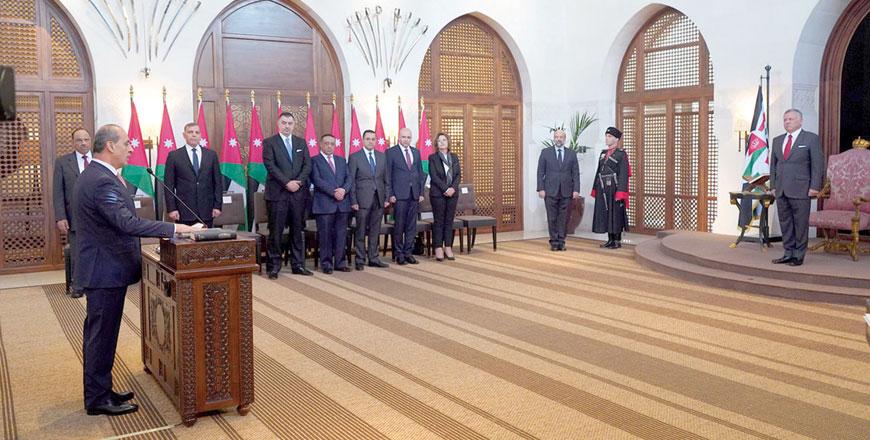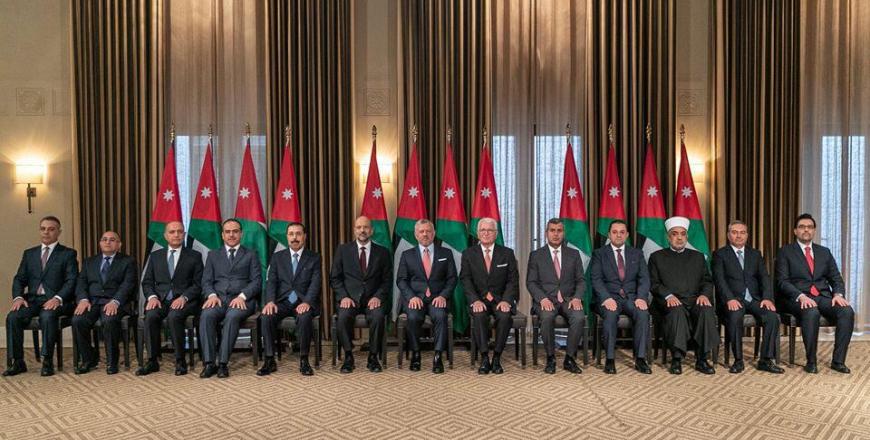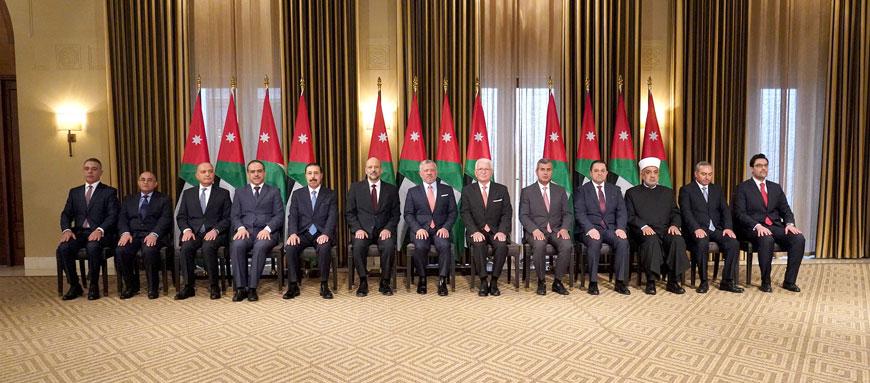You are here
Gov’t has ‘golden opportunity’ to carry out reforms after reshuffle — analysts
By Laila Azzeh - Jan 17,2017 - Last updated at Jan 17,2017
AMMAN – While analysts reacted differently to the recent Cabinet reshuffle in Prime Minister Hani Mulki's government, they all agree that the changes ended tensions that were obvious among the ministerial team.
Upon Mulki's recommendations, a Royal Decree was issued on Sunday approving the reshuffle, which included five new ministers and a new portfolio for a Cabinet member from the premier's previous government.
The ministers that joined the government are: Mamdouh Abbadi as minister of state for prime ministry affairs, Ghaleb Zu’bi as minister of interior, Ayman Safadi as minister of foreign affairs and expatriates, Omar Razzaz as minister of education and Hadithah Khreisha as minister of youth.
Bisher Khasawneh, who served as minister of state for foreign affairs in the previous government, was named minister of state for legal affairs.
The “lack of cohesion” in the Cabinet before its recent reshuffle was apparent in several files that emerged in 2016, according to observers.
“If you take each minister in the new formation individually, the majority of them are substantially experienced in public service, but the best and most skilled players cannot make any change if they do not work in the spirit of one team,” said Fahed Khitan in his column in Al Ghad daily on Monday.
“After the latest changes, there is no justification any longer for disputes. The premier made the changes as he desired. He defused the crisis between MPs and former interior minister Salameh Hammad by replacing the latter with someone who previously served as the interior and parliamentary affairs minister and was elected for the Lower House twice,” said Khitan.
While acknowledging that the reshuffle was only about “changing some faces”, Secretary General of the National Congress Party Rheil Gharaibeh noted that throughout the history of Jordan, governments have been formed and amended for no clear reasons as far as the public was concerned.
“We do not know for sure the rules followed to form governments and why some faces are replaced with others,” he told The Jordan Times on Tuesday.
He agreed with the possibility that Mulki wanted to end tensions between some ministers in the old Cabinet or get rid of those who might have been opposing the way he was handling the state files.
“It could also be a bid to move towards liberalisation, particularly with the appointment of figures such as Razzaz and Safadi. The new foreign minister may be better in dealing with new transformations in relation to Russia, Syria and US President-elect Donald Trump,” Gharaibeh said.
On the other hand, political analyst Omar Kollab believes that while Mulki resorted to “political and social heavy-weights”, he “ignored the need to have competent and untraditional economists in the Cabinet’s new makeup”.
“It would have been better for him to focus on bringing ministers with different economic visions, because the crisis in Jordan is an economic one and even political challenges are caused by the failure to come up with sound economic policies,” he told The Jordan Times.
The reshuffle saw two economic experts out: Jawad Anani, deputy prime minister for economic affairs and minister of state for investment affairs, and Yusuf Mansur, minister of state for economic affairs.
Economist Zayan Zawaneh said that the new ministerial team is unlikely to bring about any change unless they implement His Majesty King Abdullah’s instructions to reduce expenditure, including through trimming the benefits of high-ranking public officials.
“The King also spoke of the need to protect the poor and middle classes,” he told The Jordan Times, adding that the immediate priority for the government should be applying these instructions.
“I believe the government has a golden opportunity to bring substantial reforms due to the consent between the new Cabinet members and the Parliament on the need for reforms,” he noted.
On the other hand, Mohammad Al Tal, Ad-Dustour’s editor-in-chief, commended selecting Safadi as foreign minister, deeming him the right man for such a post.
“I believe that with the recent reshuffle, the government escaped the bottleneck. Choosing Razzaz and Safadi shows a willingness to change,” he said.
Kollab also praised Mulki for tasking Razzaz with the education portfolio, describing him as a man with a vision and a critical mind who is able to think out of the box and work towards economy-based education.
“This is true provided that he is given the chance to work without interference in his mandate,” he noted.
Related Articles
AMMAN — A Royal Decree was issued on Thursday approving a reshuffle in Prime Minister Omar Razzaz’s Cabinet.Salameh Hammad was appointed as
AMMAN — A Royal Decree was issued on Thursday, approving a reshuffle of Prime Minister Omar Razzaz’s Cabinet.Muhyiddine Touq was appointed a
AMMAN — A Royal Decree was issued on Thursday, approving a reshuffle of Prime Minister Omar Razzaz’s Cabinet.Muhyiddine Touq was appointed a


















